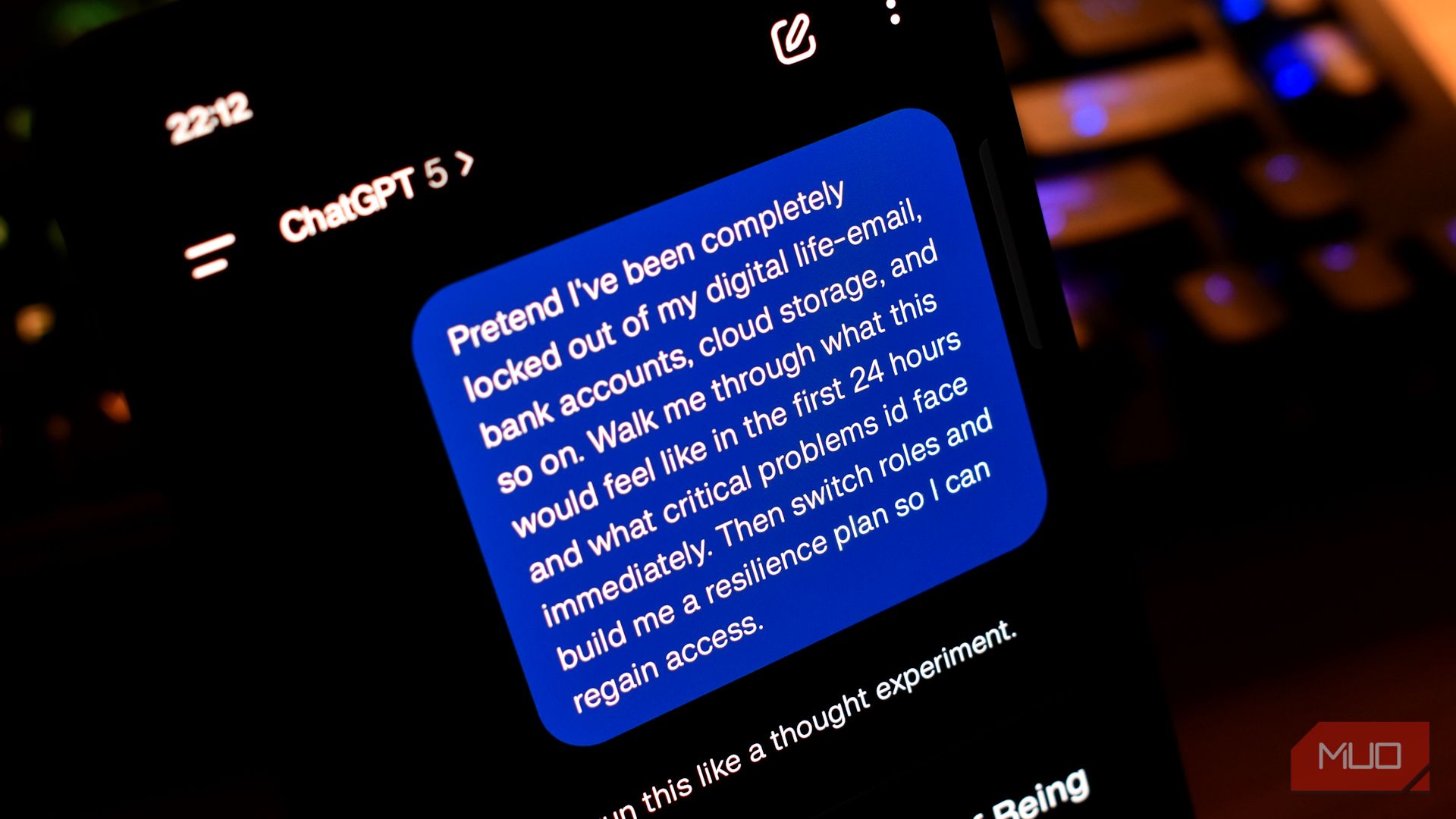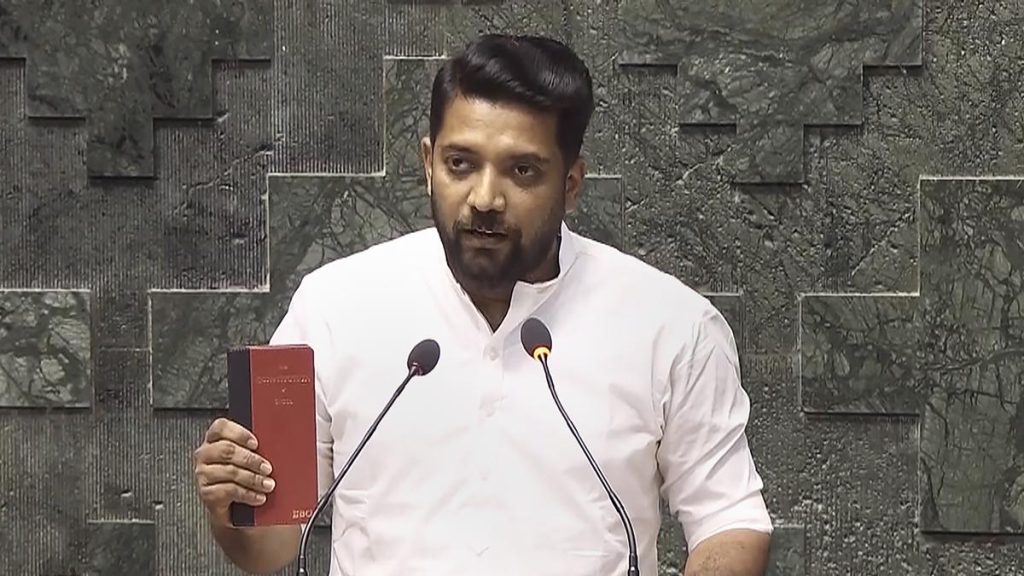Now Reading: 6 Ways to Transform an AI Chatbot into Your Security Advisor
-
01
6 Ways to Transform an AI Chatbot into Your Security Advisor
6 Ways to Transform an AI Chatbot into Your Security Advisor

Quick Summary
- Using AI as a Security Advisor: An experiment with ChatGPT explored its ability to act as a personal security advisor when prompted with scenarios involving stolen phones, personal safety in unfamiliar cities, and online account protection.
- Stolen Phone Drill: ChatGPT provided practical advice when asked what steps to take if a phone is stolen. It outlined potential moves by thieves (e.g., testing lock screens, swapping SIM cards) and recommended immediate countermeasures like remote locking, contacting the carrier, securing banking apps, and updating two-factor authentication.
- Travel Safety Tips: Using prompts for advice on navigating unfamiliar cities safely, chatgpt emphasized confident posture, situational awareness (e.g., avoiding sudden stops or staring at maps), and discreet phone usage to avoid signaling vulnerability.
- Hacker Targets Prioritization: ChatGPT identified an email account as the most critical for security due to its role in resetting other credentials. Other priority targets included banking accounts and cloud storage. its recommendations included enforcing strong passwords, two-factor authentication, backup codes, and secure recovery methods.
Images:
- Prompt output on “stolen phone” recovery.
- AIS guidance on traveling confidently in new cities.
- rank order of accounts hackers target first.
Indian Opinion Analysis
This article highlights how AI-powered tools like ChatGPT can serve as innovative yet accessible resources for enhancing personal security awareness among users globally-India being no exception. As smartphones integrate deeper into daily lives in India for communication, payments via UPI platforms like GPay or Paytm, or storing sensitive details like Aadhar-linked banking details-a structured approach to handling their loss becomes increasingly relevant.Similarly,travel safety tips matter given india’s growing domestic tourism sector post-COVID-19 resurgence.
For Indian users specifically grappling with data breaches or phishing attacks targeting financial systems linked through mobile devices or email-which are frequent points of attack-the insights here underline the importance of digital hygiene practices such as robust password strategies and two-factor verifications across platforms frequently enough used locally but globally interconnected. While these principles aren’t novel per se within cybersecurity discourse-with repeated warnings even by RBI guidelines-it is noteworthy how AI democratizes specialized knowledge effectively translating it onto actionable user micro-decisions scalable beyond mere generic lectures into scenario-tailored methodologies tailored perfectly apt!
Read moreQuick Summary:
- Account security advice: ChatGPT provided actionable steps to prioritize securing accounts, focusing first on vulnerable ones like email and financial accounts. Recommended using multi-factor authentication, auditing recovery options, rotating passwords, and clearing unused logins.
- Protecting packages from theft: By analyzing “porch pirate” tactics, ChatGPT advised minimizing package visibility with delivery lockers or hidden drop-off locations. Solutions included scheduling deliveries strategically and using smart doorbell systems for deterrence.
- Family fire escape plan stress-testing: ChatGPT conducted a simulated scenario emphasizing preparedness for chaotic emergencies. Suggestions included rehearsing backup exits thoroughly and assigning clear roles (e.g., who grabs pets or makes emergency calls).Highlighted issues like locked gates as potential vulnerabilities.
Indian Opinion Analysis:
The article underscores the practical uses of AI in everyday safety planning-from cyber-security to home safety protocols. For India specifically, where cyberattacks are increasingly common as digital dependency grows, awareness about account security can definitely help individuals mitigate risks effectively. Similarly, urban dwellers grappling with rapid courier trends coudl benefit from the delivery safekeeping strategies mentioned.
Stress-testing fire drills hits close to home as cities grow more congested; preparing households for emergencies is relevant in India’s densely populated areas prone to fires and other hazards. whether dealing with technology issues or personal security challenges at home, applying such AI-driven insights encourages preventive action that aligns well with India’s shift towards smart living solutions.
Read More: source Link
Quick Summary
- A detailed simulation using ChatGPT explored surviving a “total digital lockout,” where one loses access to all digital accounts, such as email, bank logins, cloud storage, and social media.
- The simulation highlighted immediate issues like password resets being inaccessible due to unavailable recovery emails or two-factor authentication (2FA) tied solely to locked-out devices.
- Proposed resilience measures included:
– Using backup recovery emails from different providers.
– Storing emergency access codes offline.
– Employing a password manager with an offline backup option.
– Maintaining copies of vital documents in at least two locations,including one offline storage method.
– Ensuring a secondary method for 2FA not linked exclusively to the locked device.
Indian Opinion Analysis
The experiment underlines growing global reliance on digital ecosystems and the potential fallout of centralized access points failing. For India-where digital penetration is expanding rapidly across urban and rural areas-these insights are especially noteworthy. As more Indian citizens adopt services such as UPI for cashless payments or DigiLocker for document management, the risks of widespread disruptions caused by account lockouts grow. Encouraging personal cybersecurity practices (e.g., diversified failsafes) aligns well with India’s ongoing push for robust digital infrastructure. Moreover, this case underscores that advanced tools like AI can complement traditional education by helping individuals proactively address real-world vulnerabilities.























